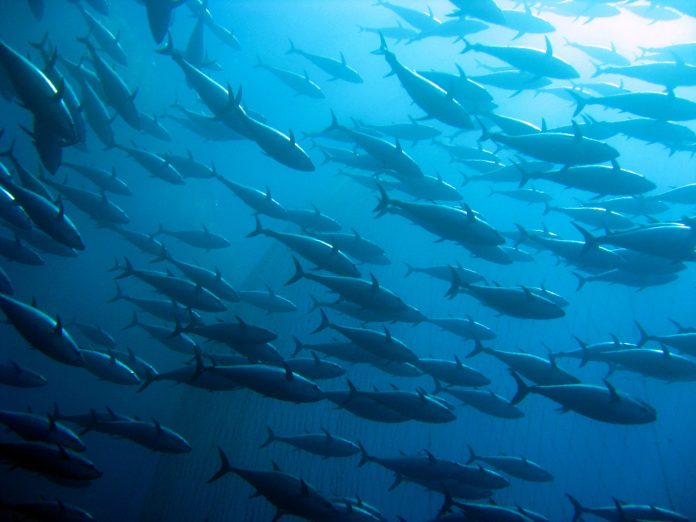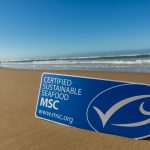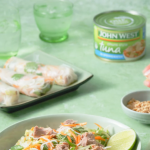New research reveals that shoppers are motivated to reduce their environmental impact and try their best to buy independently certified sustainable tuna, but the onus is on brands to make it possible.
To mark World Tuna Day, the Marine Stewardship Council (MSC) has released a new report, revealing that most Aussies are trying to seek out sustainably sourced tuna (57%). However, many found it too difficult due to the limited options sold in Australia and found it confusing to make the right choice which is likely due to numerous claims on packaging.
With less than a third of canned tuna sold in Australia certified as sustainable with the MSC blue fish tick label, market leader and sustainability pioneer John West is urging other tuna brands to cater to growing consumer demands and expectations.
John West spokesperson Katie Saunders said, “Each year, Australians buy 80 million cans of certified sustainable John West tuna with the MSC blue fish tick label so they can be assured their purchase isn’t costing the ocean.
“John West is passionate about seafood and committed to safeguarding the future of our oceans. We call on more brands to join the global effort to source seafood from well-managed fisheries and employ responsible fishing strategies that will protect tuna stocks so we can continue to enjoy tuna for generations to come.”
The research conducted by YouGov found that canned tuna consumers are very eco-conscious, with the majority (64%) stating they wish to reduce their environmental footprint, but they face several challenges that prevent them from turning those words into action.
Nearly two in five (37%) claim they can’t easily find sustainable tuna in the places they shop, and over two in five (43%) can’t see many canned tuna brands on the shelf that have an ecolabel from a trusted independent organisation. More than half (55%) admit they simply forget.
The Marine Stewardship Council, an international non-profit on a mission to end overfishing that sets “the highest global standard for sustainable fishing and seafood supply chain assurance,” said canned tuna sales in Australia exceeded $400 million in 2022 and growing.
The research found Australians love their tuna, with 72%, 14.4 million adults, stating they eat canned tuna, with millennials and parents purchasing more than average. 336 million cans of tuna are sold in Australian supermarkets, with the average household consuming 36 cans per year, making Australia one of the largest consumers of tuna per capita.
The impact of this household staple on global tuna stocks is significant, according to Marine Stewardship Council Program Director, Oceania Anne Gabriel, “Consumers want to know their tuna is sustainable, and they are asking retailers and brands to be more transparent about the sustainability of their products. They need assurance that their purchase rewards sustainable fishing practices that protect tuna supplies well into the future.
“Tuna is the most popular canned fish eaten in Australia. Unfortunately, Aussies are confused with the numerous claims as the vast majority of tuna sold in Australia is not independently verified as sustainably caught, which is a major concern when our ocean is facing extreme pressures from climate change, pollution and overfishing,” Ms Gabriel said.
Given the rising cost of living and inflation, the number one factor influencing tuna purchasing decisions is the price (25%). Still, three in five (60%) would be more likely to purchase canned tuna if it were third-party certified with an ecolabel such as the MSC blue fish tick, and almost three quarters (72%) would be willing to spend an average of 15.6 per cent more for it. Of those purchasing tuna without an ecolabel, more than one-third (40%) admitted they felt guilty about it.
Healthy tuna stocks are vital for ocean health, explains Prof Gretta Pecl at the University of Tasmania who is a member of the Biodiversity Council. “Healthy tuna populations mean the entire ecosystem is functioning well. Take away too many tuna, and there can be ecosystem change which could be bad news for ocean health and our continued love of tuna as a quick and tasty high-protein meal.”
The findings revealed that the product label is the first point of reference for most shoppers (52%) when looking to find out whether a brand is sustainable. However, almost half (45%) are confused about what they should be looking for.
An independent third-party assurance had a bigger influence than brand claims, with about three in 10 (28%) saying it is one of the top deciding factors, while less than two in 10 (18%) say so about a brand environmental message or claim on the packaging. The MSC blue fish tick label is the most trusted independent claim on canned tuna packs, with 83% of those who have seen the MSC logo saying that they trust it.
Speaking about the ACCC’s recent crackdown on greenwashing, Sustainable Choice Group founder and CEO Kiarne Treacy said, “Following the recent investigation by the ACCC into sustainability claims, a key area of focus is the use of eco-labels that are from third-party accreditations compared to self-made claims.
“Now is the time for businesses to review their use of eco-labels, both third-party and self-made. These eco-labels have the power to guide more sustainable consumption or mislead if used incorrectly. When the nature of the certification scheme is clearly described, these labels play a vital role in educating the consumer when they need it most, like at the supermarket shelf,” Ms Treacy said.
To purchase sustainable tuna, shoppers are advised to look for credible certification labels such as the MSC blue fish tick, which indicate seafood from an independently certified sustainable fishery.





